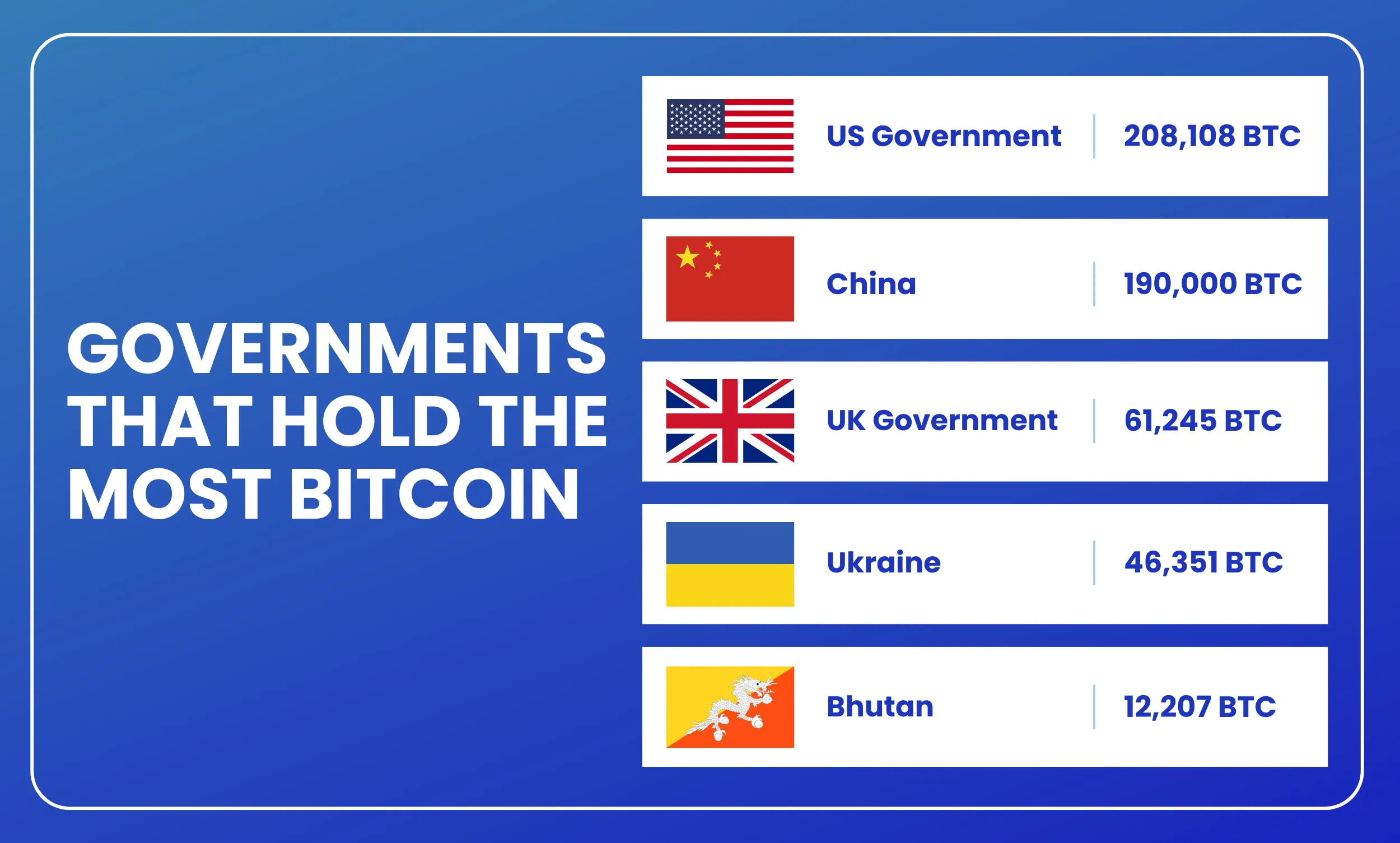From governments to whales, who owns the most Bitcoin?
Corporate moguls like Michael Saylor and Elon Musk are betting big on Bitcoin as a long-term investment

If you’d bought just one BTC a few years ago and held onto it—what crypto enthusiasts call HODLing, short for “hold on for dear life”—your investment would have skyrocketed.
With Bitcoin now trading around $90,000, even a modest holding of 10 BTC is worth approximately $900,000. For those lucky enough to have acquired tens or hundreds of thousands of BTC, the returns are staggering.
Bitcoin, launched in 2009, didn’t see major price movements for several years. Even at the onset of the Covid-19 pandemic in 2020, Bitcoin was valued at just $5,000—a far cry from its current price. Its meteoric rise in recent months, fueled by events like Donald Trump’s recent election victory, has propelled the cryptocurrency to new heights.
So, who are the wealthiest Bitcoin holders? Let’s explore the major players—spanning individuals, corporations, and governments—who control this digital gold.
Bitcoin billionaire wallets
Source: CoinCarp
The world of cryptocurrency uses storage systems known as crypto wallets, with each one having a unique address for sending and receiving funds. Though the identities behind every wallet cannot always be traced, each address and transaction are publicly recorded on the blockchain ledger—the digital, decentralized, and immutable database that keeps transactions.
By simply checking blockchain explorers, anyone can monitor any crypto transaction and see the activity of every wallet—allowing anybody to check who has the highest Bitcoin holdings.
The largest wallet currently belongs to Binance, the world’s leading cryptocurrency exchange, which holds 248,598 BTC—valued at approximately $22.37 billion. This wallet has processed over 5,200 transactions, receiving a total of 1.19 million BTC and sending out 941,777 BTC.
This type of holder is often referred to as a Bitcoin whale, a term used for individuals or entities that control large amounts of Bitcoin.
The second-largest wallet, linked to the Bitfinex exchange, contains 168,010 BTC, worth about $15.12 billion. Through a total of 252 transactions, this wallet has received 4.73 million BTC and sent 4.56 million BTC.
The third-largest wallet, holding 151,115 BTC ($13.6 billion), is not publicly linked to any specific business or entity, making it what we refer to as an anonymous wallet. This wallet has engaged in 426 transactions, receiving 2.39 million BTC and sending 2.24 million BTC.
The fourth wallet, which contains 136,775 BTC ($12.3 billion), also remains anonymous, with no known corporate or individual ties. It has completed 403 transactions, receiving 217,730 BTC and sending 80,955 BTC.
The fifth-largest wallet, with 94,643 BTC ($8.52 billion), similarly lacks a known affiliation, classifying it as anonymous. This wallet has completed 130 transactions but has not yet sent any BTC, suggesting a strategy of long-term accumulation.
Businesses that hold the most Bitcoin
Source: CoinGecko
It’s not just anonymous wallets accumulating Bitcoin; corporations have also made significant investments in the cryptocurrency.
MicroStrategy, a business intelligence company, leads the pack with 252,220 BTC under its management—worth $22.88 billion. Michael Saylor, the company’s founder and executive chairman, has been an outspoken advocate for Bitcoin, calling it the ultimate store of value. Following Trump’s victory, Saylor even declared on X: “We have a Bitcoin President.”
We have a #Bitcoin President. pic.twitter.com/HUACTe1XPI
— Michael Saylor⚡️ (@saylor)
Other prominent corporate holders include Marathon Digital Holdings with 26,842 BTC, Galaxy Digital with 15,449 BTC, and Tesla with 11,509 BTC. Crypto exchange Coinbase rounds out the list with 9,182 BTC.
Governments that hold the most Bitcoin

Governments, too, have recognized Bitcoin’s potential as a strategic asset, collectively holding about 2.2% of its total supply. However, all this data is estimated, as countries tend not to reveal their assets in full.
The US leads the way, with an estimated 208,109 BTC in federal reserves. Much of this has been seized in operations targeting illicit activity. China follows closely, having confiscated 190,000 BTC from the PlusToken Ponzi scheme.
Other notable government holders include the UK (61,245 BTC), Ukraine (46,351 BTC), and Bhutan (12,207 BTC).
The unmatched contender: Satoshi Nakamoto
Despite the billions held by wallets, corporations, and governments, none come close to the holdings of Bitcoin’s enigmatic creator, Satoshi Nakamoto.
It is widely believed that Nakamoto mined around one million BTC between 2009 and 2010, spread across approximately 22,000 wallet addresses. While there is speculation that some of these coins have been moved, the exact status of this stash remains one of Bitcoin’s greatest mysteries.
The Bitcoin Billionaires' Club
From anonymous wallets to corporate giants and national governments, Bitcoin’s wealthiest holders have reaped immense rewards from the cryptocurrency’s rise. Yet, with great rewards come risks. Bitcoin’s price volatility means that fortunes can soar—or plummet—in an instant.
As the cryptocurrency continues to attract institutional and individual interest, its ownership landscape offers a fascinating glimpse into the ever-evolving world of digital finance.



